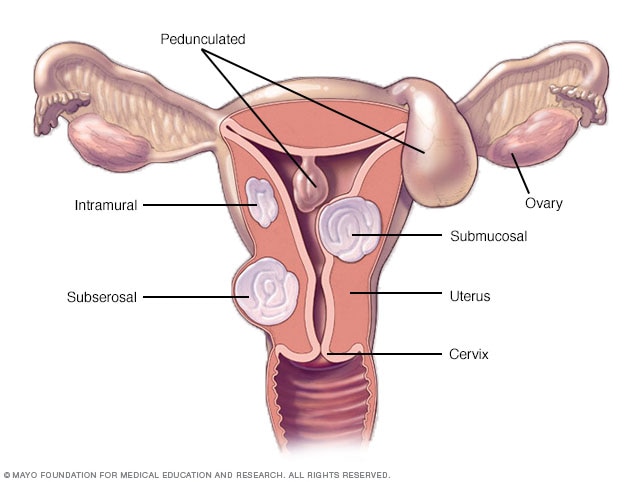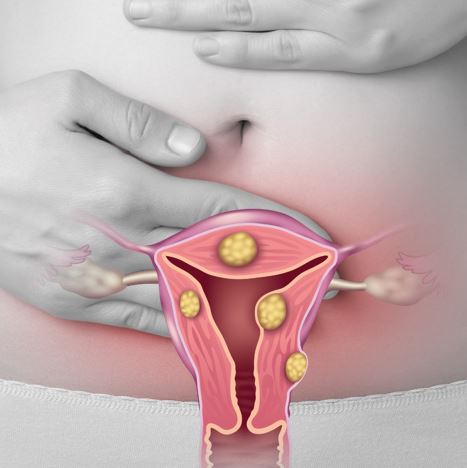The word fibroid is one many women don’t like to hear. Many assume that it is a life threatening condition but this is not exactly correct.
In very simple terms, a fibroid is a growth associated with the womb. It is also known as uterine leiomyomata. The good news is that fibroids are noncancerous growths, however they can sometimes cause other problems and in some cases they may cause no problems at all.
There are different types of fibroids. They can occur anywhere in the womb and are named according to where they grow:
- Intramural fibroids grow within the muscle tissue of the womb. This is the most common place for fibroids to form.
- Subserous fibroids grow from the outside wall of the womb into the pelvis.
- Submucous fibroids grow from the inner wall into the cavity of the womb.
- Pedunculated fibroids grow from the wall of the womb and are attached to it by a narrow stalk.

What causes fibroids?
It is not clear why fibroids develop. Studies done have not confirmed any direct causes, however it has been found that Fibroids are sensitive to the female hormones oestrogen and progesterone that are made in the ovary. Fibroids tend to grow bigger when levels of female hormones are high – for example, during pregnancy. They also shrink when levels are low – after the menopause. Therefore they are more common in women aged 30-50 and can sometimes run in families and are more common in women from African-Caribbean origin.
It is difficult to know exactly how common they are as many women won’t have any symptoms, and so may not know they have fibroids. Probably at least 1 in 2 women develop one or more fibroids in their lifetime, and probably more. It is common to have several fibroids of various sizes, although some women just have one.
What are the symptoms of Fibroids?
Many women will have fibroids but never know about it because they do not have any symptoms. Some women find out about fibroids incidentally while getting an ultrasound for a different reason. However when there are symptoms, they can range from mild to severe and varies from person to person.
The most common symptoms include:
- Heavy, painful and/or prolonged periods
- Abnormal bleeding between menstruation
- Abdominal pain or discomfort
- Back pain
- Pelvic pain (caused by tumour pressing on the pelvic organs)
- Constipation
- Frequent urination or difficulty passing urine
- Pain during sex
- A firm mass, often located near the middle of the pelvis, which can be felt by a doctor.
If you or anyone you know is experiencing any of the above symptoms, It doesn’t mean that they definitely have fibroids. it is best that they go to a doctor, preferably a gynecologist for proper investigation and diagnosis.







2 comments
Is there any medication for it
Yes there are. Best prescribed by your gynecologist
Comments are closed.